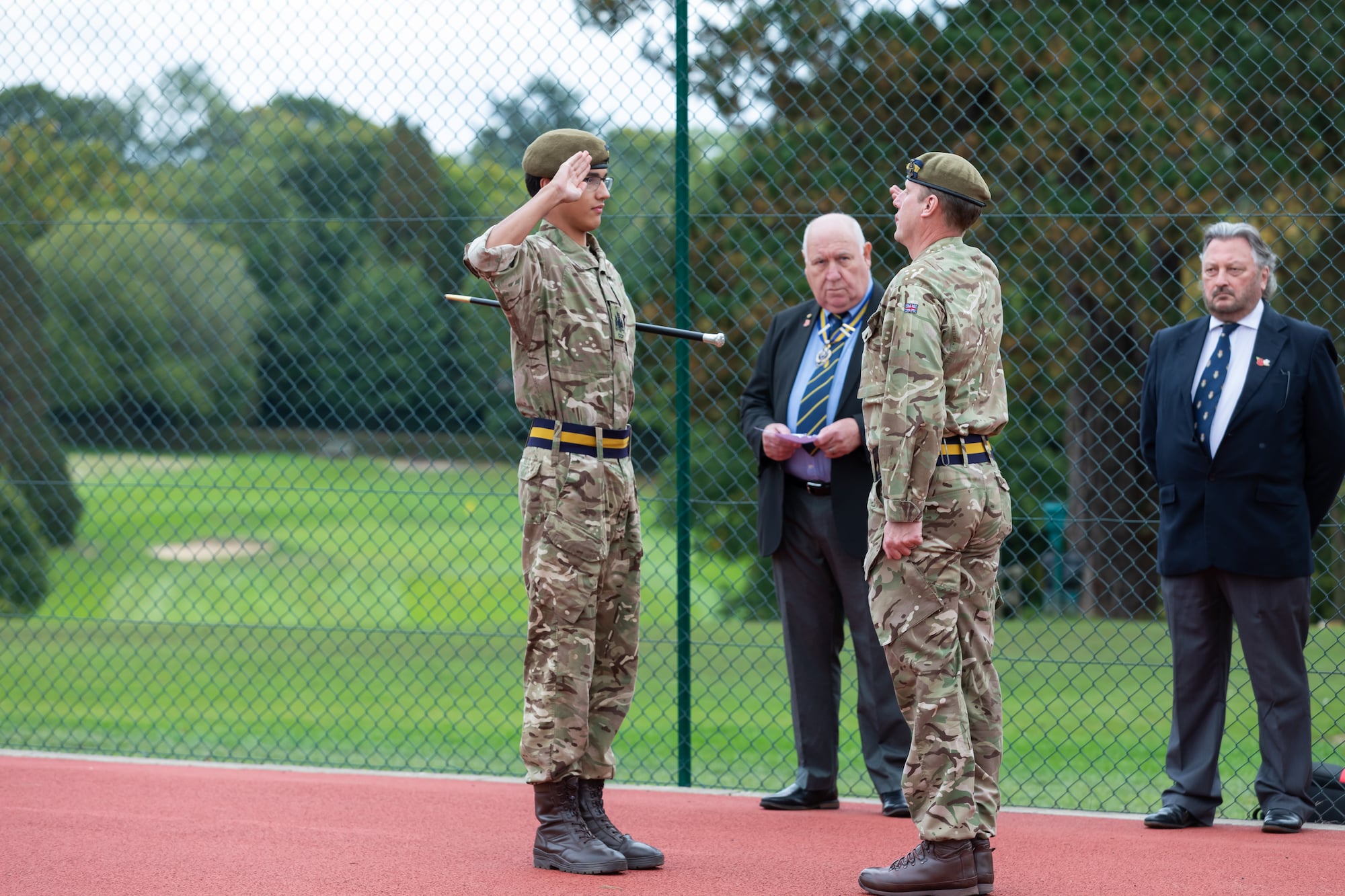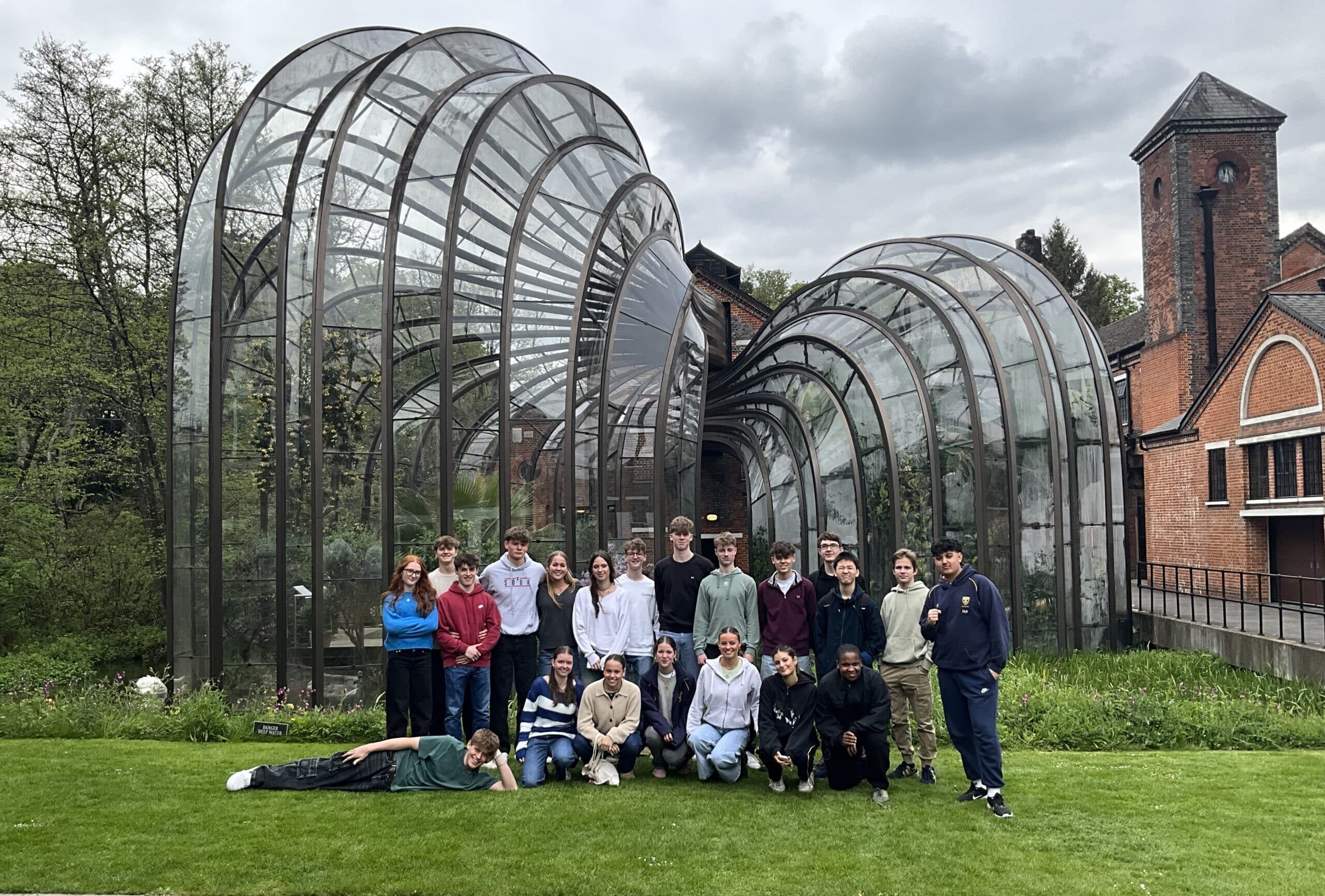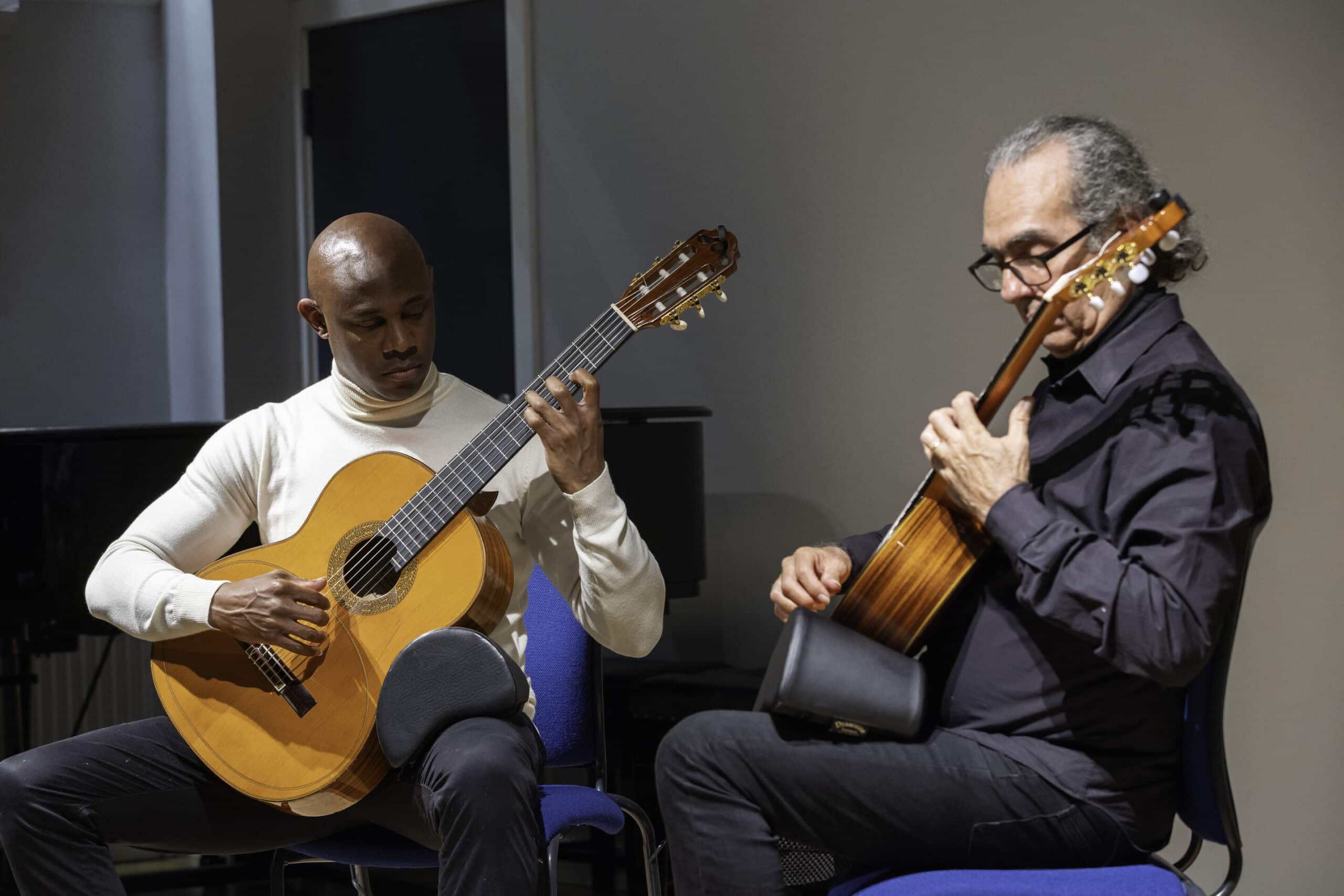At the end of a very busy first half term, GCSE and A Level classicists enjoyed watching a performance of Euripides’ Bacchae. Such an evening was made slightly less relaxing, however, given that the performance was in the original Ancient Greek! Nevertheless, the intense staging and dynamic representations of both Dionysus, played by three actors, and Pentheus meant that so much of the meaning still came across strongly (perhaps with a little help from the English surtitles!).
Greek tragedy, despite having been written and originally performed 2500 years ago, contains such important discussion of the mortal existence that it remains entirely relevant for a modern audience and adapts itself neatly for difficult questions of our own time. Whilst the Bacchae originally explored themes of animalistic human nature, the interplay between gods and men and the expression of gender, this play went one step further and exaggerated gender fluidity through the manipulation of traditional gender roles. Such an interpretation is entirely befitting modern discussion of traditional gender and allows us to fully appreciate how the Greeks were forced to question their own traditional norms.
An excellent time was had by all on the trip; pupils taking Greek especially enjoyed picking out words they recognised (I think the word θεός was a particular frequent favourite!). Sixth form Classical Civilisation students also took the opportunity to consider the role of the chorus within a tragedy and the physical nature of staging a Greek tragedy, a key element of their A Level course. We look forward now to seeing Kings’ College London’s production of Medea in February.
Back to all news











